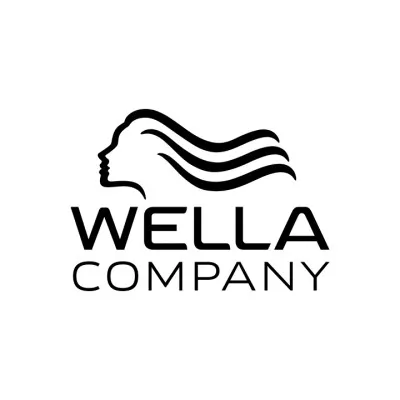
Wella
Learn more about our scoring →
About Wella
Wella represents a complex sustainability landscape within the professional haircare sector, operating as a German-founded brand under KKR ownership since its acquisition from Coty. The company's 145-year heritage in hair color and professional styling has positioned it as a dominant force in salon channels, where its technical innovations and education programs reach hundreds of thousands of stylists globally.
Wella's sustainability performance reveals a brand in transition, with notable achievements in climate action and packaging innovation alongside significant challenges in animal welfare standards. The company has embraced science-based climate targets and demonstrates measurable progress in emission reductions and waste elimination, while pioneering circular packaging solutions that substantially reduce material consumption. However, its continued presence in markets requiring animal testing creates fundamental barriers to cruelty-free positioning.
Under KKR's ownership, Wella has maintained its professional heritage while attempting to modernize its environmental footprint, though the brand's sustainability journey remains incomplete across several critical areas including biodiversity protection and comprehensive third-party verification of social impact claims.
The Good Stuff
Where Wella appears to be making meaningful progress. We cross-referenced these findings with multiple independent sources.
Science-Based Climate Leadership
Validated science-based targets for significant emission reductions with demonstrated progress toward zero waste to landfill and measurable decreases in operational environmental impact
Circular Packaging Innovation
Industry-leading packaging solutions including 100% recycled aluminum tubes and refillable systems that reduce plastic consumption by approximately 72% while maintaining product integrity
Professional Education Excellence
Comprehensive training programs reaching nearly 650,000 hairstylists globally with inclusive professional development and sustainability education initiatives
The Reality Check
Areas where the publicly available data gets murky, incomplete, or concerning. We're transparent about the limitations of our analysis.
Animal Testing Requirement
Continued animal testing in markets where legally required prevents cruelty-free certification and contradicts growing consumer expectations for ethical beauty standards
Biodiversity Action Void
No disclosed partnerships, funding, or initiatives supporting wildlife conservation, habitat restoration, or biodiversity protection despite environmental commitments
Supply Chain Transparency Gaps
Limited independent audit disclosure and absence of certified sustainable sourcing schemes beyond internal supplier code requirements
Wella's
Impact Aura
A visual representation of Wella's positive impact
across People, Planet and Animals
Each colored area represents the brand's performance in that sustainability category. The size and intensity of each blob corresponds to their score—larger, more vibrant areas indicate stronger performance.
Our Research
Key findings from our comprehensive analysis of Wella's sustainability performance across People, Planet & Animals impact.
Positive Impact on People
Research Highlights
- Vegan formulations achieved in Koleston Perfect ME+ and Illumina Color lines with high levels of naturally-derived ingredients
- Professional education programs trained nearly 650,000 hairstylists globally through inclusive development initiatives
- UN Global Compact participation demonstrates commitment to human rights and anti-corruption principles
- Responsible Sourcing Strategy requires supplier adherence to External Business Partner Code of Conduct
- Marketing claims align with disclosed product attributes though independent certification verification is limited
Evidence Strength
Strong documentation for professional education and supplier codes, limited third-party verification for labor and sourcing claims
Positive Impact on Planet
Research Highlights
- Science-based climate targets validated through independent standards with demonstrated early progress toward emission reductions
- Zero waste to landfill achievement at major European facilities demonstrates operational commitment
- Packaging innovation includes 100% recycled aluminum tubes and refill systems reducing plastic consumption by approximately 72%
- Water stewardship targets aim for significant per-unit reductions through facility improvements and salon education programs
- Lifecycle assessment methodology applied to reformulated products like Welloxon Perfect showing measurable environmental impact reductions
Evidence Strength
Excellent documentation for climate commitments and packaging innovation, verified through independent lifecycle assessments and facility audits
Positive Impact on Animals
Research Highlights
- Animal testing occurs in markets where legally required, preventing cruelty-free certification
- Vegan formulations available in select color lines but not implemented brand-wide across all product categories
- Wildlife conservation partnerships and habitat restoration initiatives not disclosed in public sustainability reporting
- Sustainable sourcing protocols lack independent certification schemes for animal-derived ingredients
- Conservation funding and biodiversity support programs not evident in available documentation
Evidence Strength
Clear documentation confirms testing policies and vegan product availability, absence of wildlife and conservation initiatives well-established
See the Receipts
We don't just make claims—here are the official certifications that prove Wella's sustainability commitments.
Frequently Asked Questions
Is Wella sustainable?
Wella demonstrates strong environmental performance through science-based climate targets and innovative packaging solutions, while facing significant challenges in animal welfare and biodiversity protection. The brand shows measurable progress in emission reductions and waste elimination but lacks cruelty-free certification due to required testing in certain markets.
Is Wella cruelty-free?
Wella is not certified cruelty-free as the brand continues animal testing where legally required by local regulations. While the company states it does not test on animals except where mandated by law, this practice prevents independent cruelty-free certification.
Does Wella have vegan products?
Wella offers vegan formulations in select product lines including Koleston Perfect ME+ and Illumina Color, though the brand is not certified vegan overall. Many other product lines may contain animal-derived ingredients, requiring individual product verification.
What makes Wella's packaging sustainable?
Wella pioneered several packaging innovations including 100% recycled aluminum tubes for color products and refillable Elements pouches that reduce plastic consumption by approximately 72% while utilizing post-consumer recycled materials.
Does Wella have climate commitments?
Wella maintains science-based targets validated through independent standards, aiming for significant reductions in operational emissions while demonstrating early progress through facility improvements and zero waste to landfill achievements.
How does Wella support professional hairstylists?
Wella's education programs train nearly 650,000 hairstylists globally through inclusive professional development initiatives, sustainability education, and partnerships that promote both technical excellence and environmental awareness in salon practices.
Is Wella environmentally responsible?
Wella shows strong environmental performance in climate action and packaging innovation with validated science-based targets and circular design solutions, though the brand lacks disclosed initiatives in biodiversity protection and wildlife conservation.
Ready to Shop Wella?
Find Wella products through our trusted retail partners
The Bottom Line
Wella exemplifies the sustainability challenges facing established professional beauty brands, achieving notable success in climate action and packaging innovation while struggling with animal welfare standards that prevent cruelty-free positioning. The brand's science-based environmental commitments and circular packaging solutions demonstrate genuine progress, yet significant gaps in biodiversity protection and comprehensive ethical standards limit its overall sustainability leadership potential.


